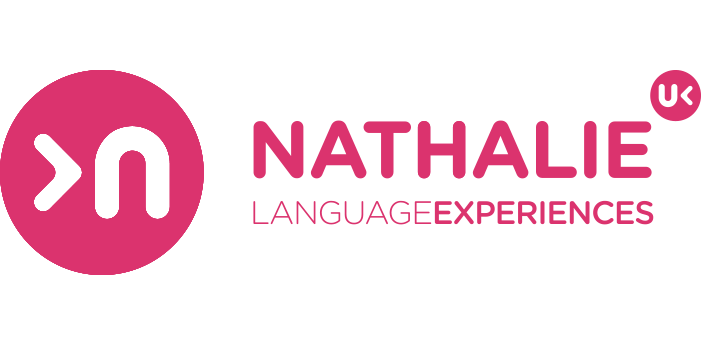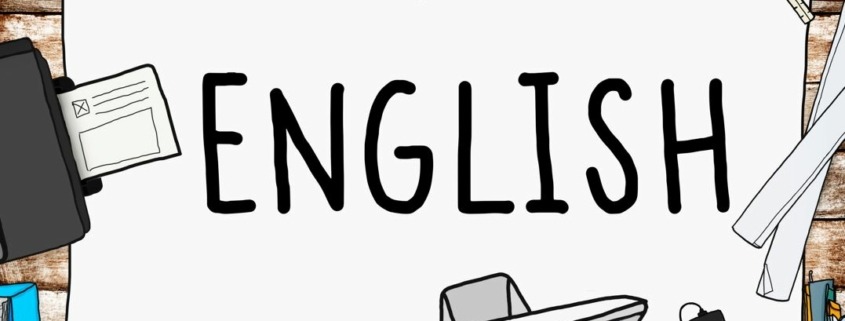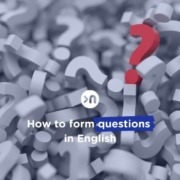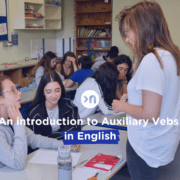Introduction to Verb Tenses in English
A brief introduction to Verb Tenses in English, since we do not want the content to be too overwhelming.
If we told you very recently what the 25 most used verbs in English are, the time has come to get on grammatical issues, even in small doses.
Knowing the verb tenses in English is a key aspect of grammar and you need to learn them to consolidate your knowledge base. Do not avoid, go little by little, learning English is worth it.
Take a look at this visual outline to understand and see each verb form in its time frame. This will help you understand them and above all, use them correctly.
If you look at this timeline, you will be able to see the times in order from the oldest to newest.

Past Tenses in English
We are going to give you a brief description of each one, later we will delve deeper. Now might be a good time for you to meet the 9 most confusing verbs in English that you will have seen in movies.
It is quite possible that when you start to learn English, the present and the past will be enough for you, but it will not be enough to have a full command of the language.
Past Perfect Simple
We’ll start with one of the easiest tenses in English to understand. The simple past perfect refers to a time prior to the most recent past.
It is used to emphasize and point out that one event occurred before another in the past, regardless of the order in which it is mentioned, since it is always clear which one happened before.
When they arrived, we had already started cooking.
Past Perfect Continuous
The past perfect continuous refers to a time prior to the recent past. With this tense, the process matters more than the result.
We had been trying to open the door for five minutes when Sammy found her key.
Simple Past
The simple past is used to talk events that began and ended at a specific time in the past. One of the easiest tenses in English to learn and common to almost all languages.
We watched the Handmaid’s tale last night
Past Continuous
The continuous past describes events located in a time prior to the present, whose beginning is located in the past and which has not ended in the present. That is, it expresses an incomplete action from the past.
The sun was shining and the birds were singing as the elephant cam out of the Jungle.
Present Tenses in English
We can’t only use the simple present, the easiest verb tense, to be able to master grammar, you must know and use all of its variants.

Present Perfect
It is used to indicate the link between the present and the past, the time in which the action took place is prior to the present, but in a non-specific way and a lot of the time, there is a greater interest in the result than in the action in particular.
She has worked in the bank for five years.
Present Perfect Continuous
It refers to a non-specific time period between the past and the present. That is, the speaker emphasises something that began and may not have finished yet, in this case, they are interested in both the process and the result, it is even possible that the action has recently ended or is still unfinished.
She has been waiting for you all day.
Present Simple
One of the verb tenses in English that you surely know the best. It is used to express routines, customs, actions and events that are repeated frequently, among other uses, which we will comment on in a more in-depth post that we are going to prepare. One feature that we want to highlight in this verbal form is that it’s not used to talk about what is happening at the moment.
I work in London since I finished my studies.
Present Continuous
As with all English verb tenses, the speaker’s attitude is as important as the moment the action occurs. By using it, we mean something that has not been completed or is incomplete.
Harry and Sally are always arguing.
Future Tenses in English

Simple Future
It is a later time than the current one and serves to express events or facts with certainty. It is used to predict an event, for spontaneous decisions and much more. We will go into detail about the future in a more in-depth post about it.
It will rain tomorrow
I’ll pay for the tickets by credit card
Future Continuous
With this verb tense, an unfinished fact or event is manifested that will continue to occur after the present moment. It is used for a wide variety of purposes that we will look into in depth.
Just think, next Monday you will be working in your new job.
Future Perfect Simple
This refers to an action that will be completed in the future. When using this verb tense, we project ourselves into the future and look back at a completed event sometime after the present, most of the time it used with temporary expressions.
I will have been here for six months on June 23rd.
Future Perfect Continuous
We finish our tour of the English verb tenses with a way that looks to the future and looks to the past. It refers to unfinished events or actions, embedded in the present and in the future, it is often accompanied by temporary adverbs.
I will have been waiting here for three hours by 6’o’clock.
So, this is our brief tour of the verb forms. If you need help with languages, we recommend you choose a good English school.
If you want to know some more tips to improve your English, visit our blog!
But if you want to go a step further… What would it be for you to travel and study one academic course abroad, in an English speaking country?






Leave a Reply
Want to join the discussion?Feel free to contribute!